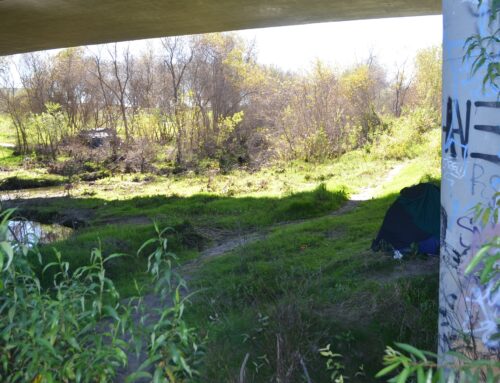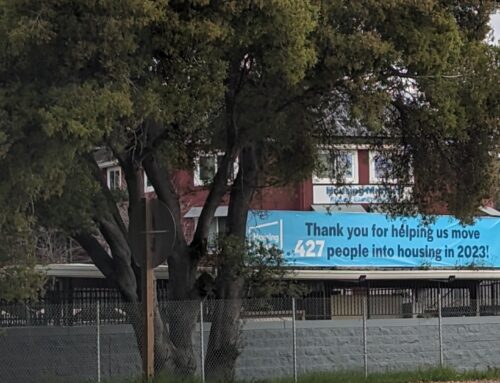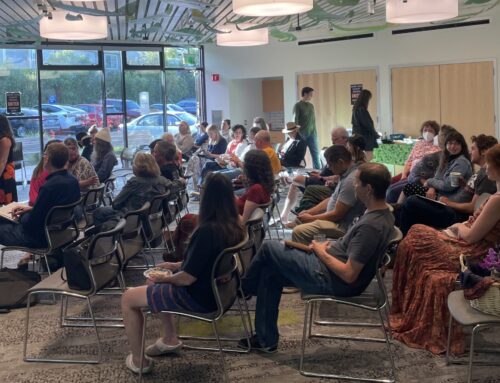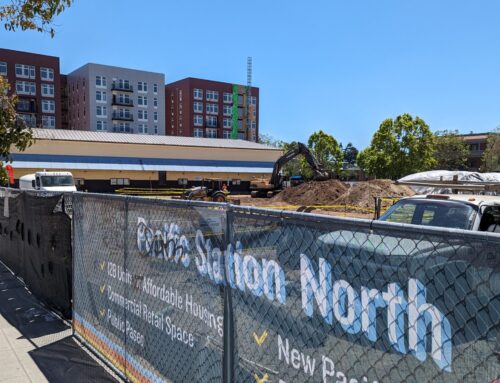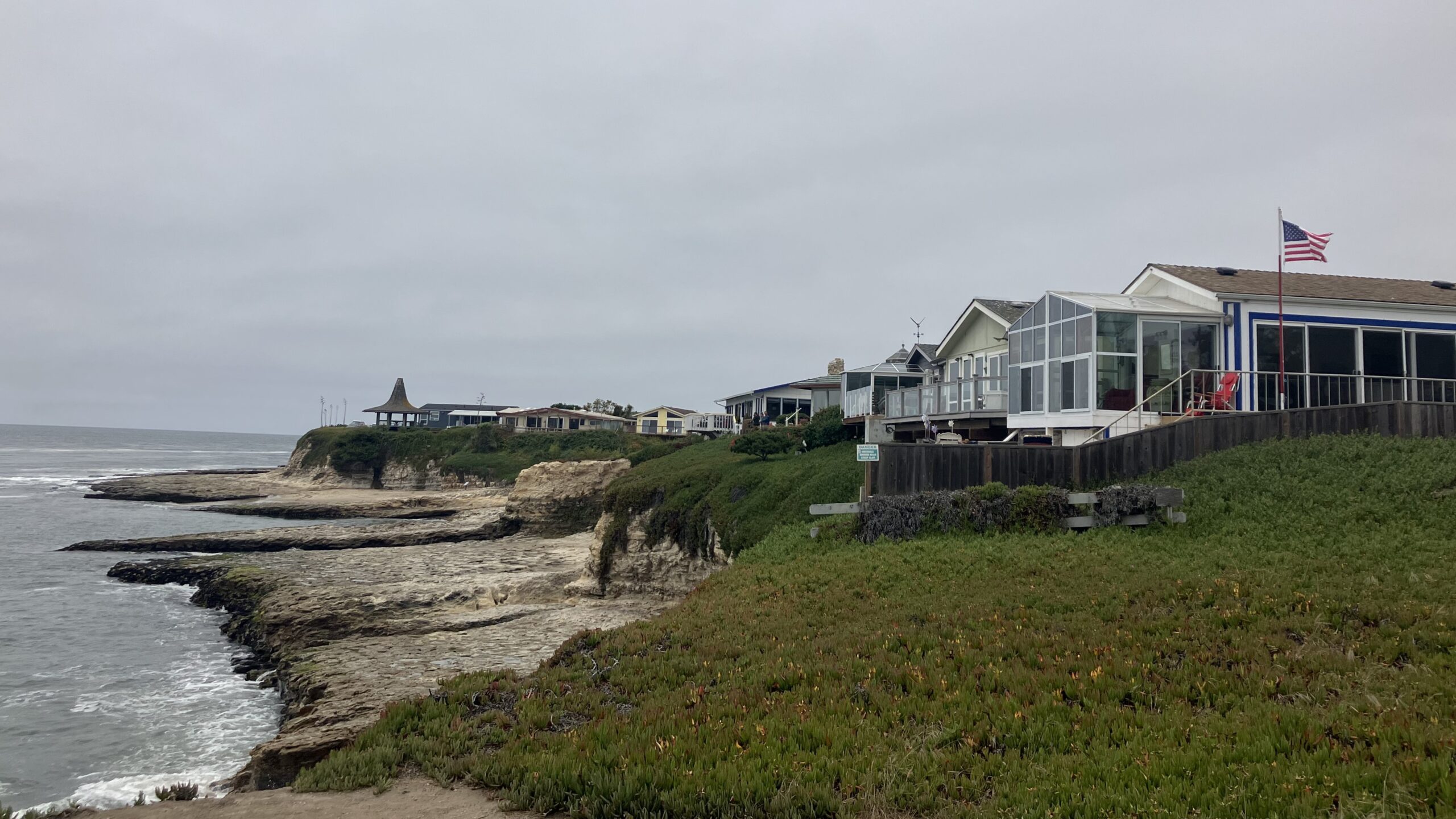
The De Anza Santa Cruz mobile home park at 2395 Delaware Ave. in Santa Cruz includes views of the ocean and Natural Bridges State Beach. Tenants must be 55 or older, with some exceptions. (Michael Mott — Santa Cruz Local)
SANTA CRUZ >> Some seniors at the De Anza Santa Cruz mobile home park had their monthly rent rise as much as 6.8% this year, the highest rent hike there in 20 years.
Sixty-two-year-old Rudy Ortega said his family’s rent has risen more than $1,000 in the past four years at De Anza. They plan to leave. Ortega is president of the De Anza Mobile Home Park Homeowners Association. The park is for residents 55 and older, with some exceptions.
“It’s brutal,” Ortega said. “We’re having to sell because when are the [rent increases] going to stop? Not a lot of seniors make that kind of money,” he said. “People need to understand seniors are on a fixed income and they can only afford so much.”
The rent increase was allowed under a 2003 legal settlement between the City of Santa Cruz and the mobile home park’s owner, Chicago-based Equity LifeStyle Properties Inc.
- Because mobile-home park owners can raise rents based on a percentage of the area’s consumer price index — which is a measure of inflation — many mobile home rents have climbed along with higher prices of goods and services.
- Renters in older apartments in Santa Cruz County and across the state can have rents raised up to 10%, or the rate of the consumer price index plus 5%, whichever is lower. State law AB 1482 governs it.
- During the past 10 years, the consumer price index for the San Francisco-Oakland-Hayward Metropolitan Area has risen about 1% to 4%. In June 2022, the index change peaked at 6.8%.
There are more than 3,300 mobile and manufactured homes across more than 60 mobile home parks in Santa Cruz County. Many of those residents have seen their rents rise this year, said members of the Santa Cruz County Mobile Home Commission.
Rent rules
Many mobile homes are different from typical rentals because the occupant buys the home and rents the “space,” or land, beneath it.
De Anza mobile home park at 2395 Delaware Ave. is on a bluff adjacent to Natural Bridges State Beach. Some homes have ocean views. The park was once rent controlled, but it is now not intended for low-income residents.
Eight of the 198 manufactured homes in the De Anza park were for sale as of Aug. 8, listed from $285,000 to $569,000. In recent years, the starting rent for new residents has ranged from about $2,500 to more than $5,600. When a space is sold, Equity LifeStyle Properties can set the space’s “market rate” at its discretion. At least seven spaces have been sold this year, according to real estate records.
“A lot of people have new rent that’s pretty high,” said Dave Allenbaugh, a 75-year-old De Anza resident. “They’re paying 100% of CPI. They also have long-term leases but are already at market rent, so their rents will go up compounded based on CPI,” Allenbaugh said. “If you stretch it out 10 years, you’ll see how quickly that increases.”
Allenbaugh said anyone who has rent increases tied to the consumer price index should calculate how the rent compounds over time with a compound rent calculator. “People need to understand going into the park that this is all perfectly legal, and people need to understand how they’re going to be paying rent,” Allenbaugh said.
De Anza Santa Cruz residents have averaged an annual rent increase of 3.6%, a representative of Equity LifeStyle Properties said.
- If the base monthly rent is $4,000, a 3.6% increase makes the monthly rent $4,144.
- Another 3.6% increase makes the second year’s monthly base rent $4,293.18.
- Another 3.6% increase makes the third year’s monthly base rent $4,447.74.
“There was a real estate person I spoke with who said, ‘This won’t be your forever home.’ That says it all,” said Karen Dawson, a 71-year-old De Anza resident.
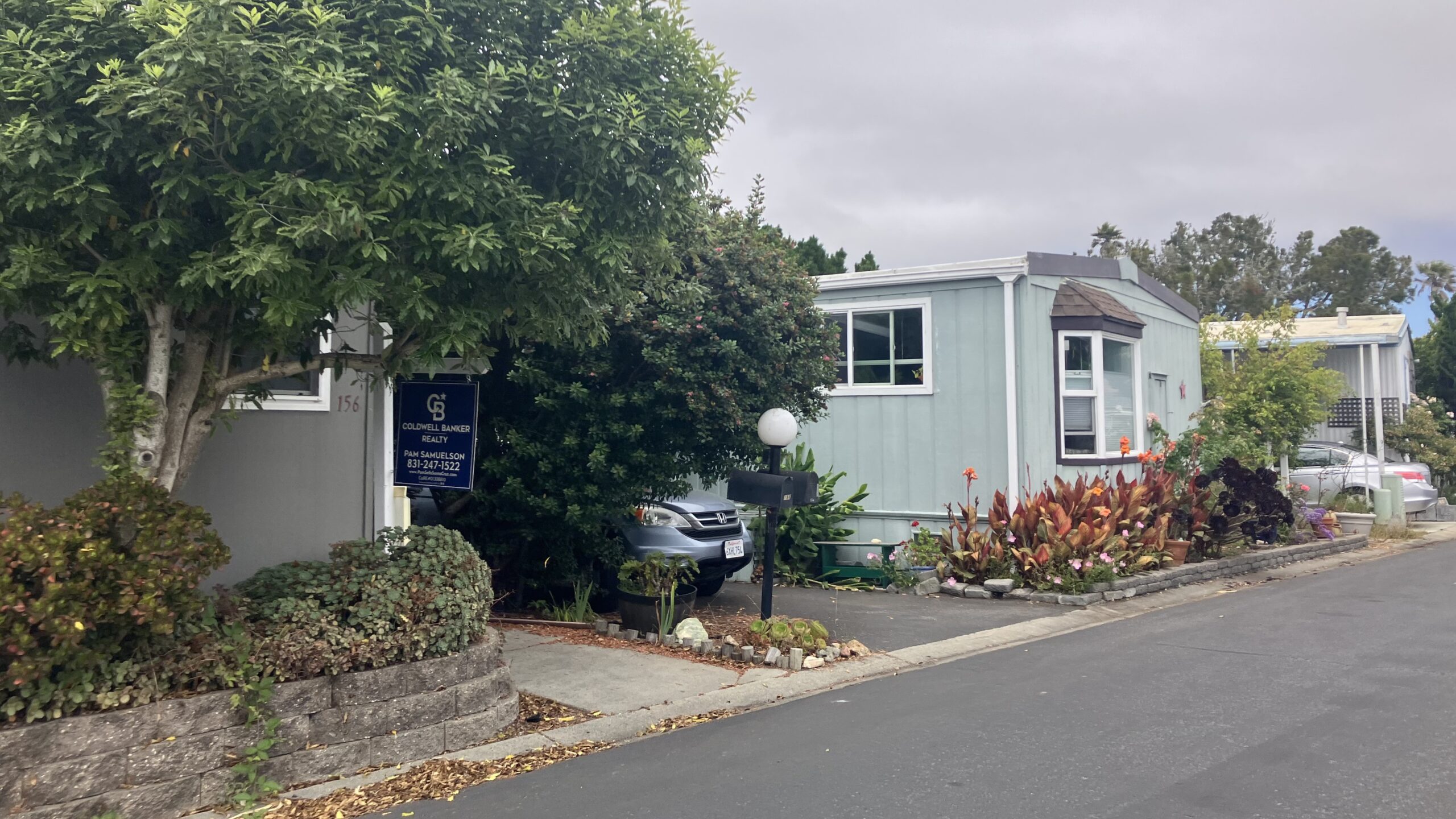
Unit 156 at De Anza Santa Cruz is a two-bedroom, two-bathroom mobile home listed at $385,000. On top of the home price, the monthly space rent has been $3,780, according to a listing. (Michael Mott — Santa Cruz Local)
Dawson said she knows people in De Anza who are looking for new places to live. “Most of the people are single women. That kills me. I wouldn’t be here if I didn’t have a renter. I won’t have that income forever, we’re elderly,” Dawson said.
An Equity LifeStyle Properties representative said its employees regularly discuss issues with residents including rent increases.
Depending on whether the De Anza renter is short-term or long-term, rents can be raised at 100% of the consumer price index or 75% of the index, representatives said.
“Rent levels at the property have increased an average of approximately 3.6% annually over the last five years, which includes an increase of 6.6% for 2023,” wrote Jennifer Ludovice, Equity LifeStyle Properties’ vice president of public relations, in an email. That 6.6% includes some residents who only paid an increase of 75% of the consumer price index, rather than the full consumer price index, who saw an increase of 6.8%. “By contrast, year-over-year rent growth for the trailing 12 months for rental homes and apartments in Santa Cruz was 8.6%, according to Zillow.com.”
Santa Cruz County is the most expensive rental market in the nation relative to wages, the National Low Income Housing Coalition reported in June. Rent in the City of Santa Cruz is 76% higher than the national median and 2.92% higher than San Francisco as of Aug. 9, according to Zillow.
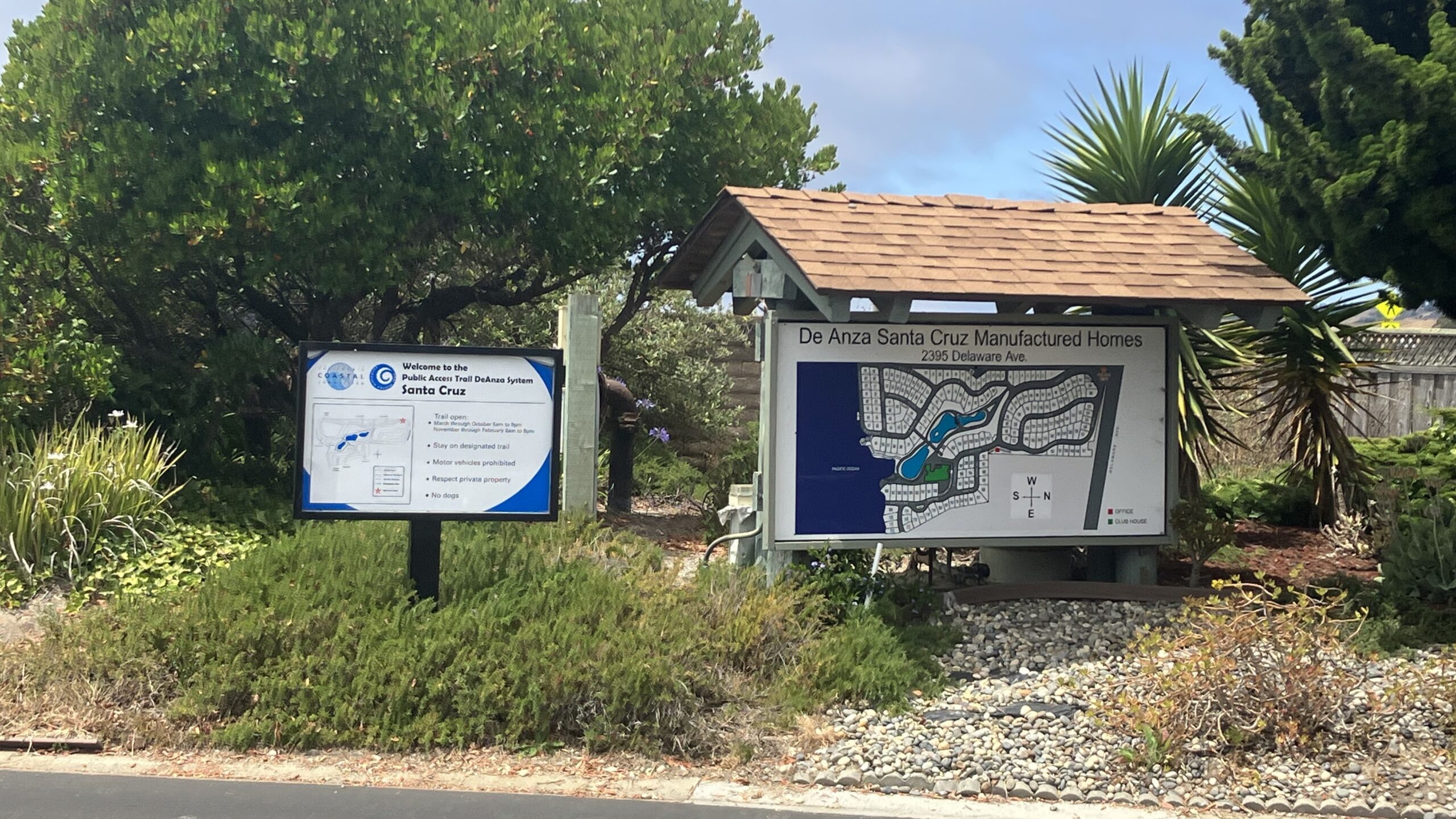
De Anza Santa Cruz mobile home park at 2395 Delaware Ave. has 198 units, some with ocean views. There is a community pool, hot tub and sauna. (Michael Mott — Santa Cruz Local)
“A hardship program is also currently available for long-term residents who experience difficulty making rent payments,” Ludovice wrote. “Anyone in need of financial support is encouraged to speak to the community manager to make the necessary arrangements.”
Some De Anza residents said Equity LifeStyle Properties checks the financial well-being of prospective residents. For instance, the park checks incomes and credit, so more recent tenants may be more well off than those who lived at the park under rent control in the 1990s.
Some De Anza residents said they remembered when the park had rent control.
“We lost rent control. That was the issue, that was the problem,” Dawson said, though she wasn’t at De Anza then.
Court battle
The Santa Cruz City Council adopted a law in 1992 that tried to suppress the rent on mobile home park spaces and on the homes themselves to provide relief to low-income seniors. The city didn’t enforce the law well, and some mobile-home park residents sold their mobile homes for hundreds of thousands of dollars more than the city law allowed, according to a 1999 lawsuit that Equity LifeStyle Properties filed against the City of Santa Cruz.
Equity LifeStyle Properties attorneys alleged that the law kept the firm from profit tied to the valuable coastal property. Attorneys with the City of Santa Cruz fought in court until 2003 and spent more than $700,000 defending it.
The 2003 settlement allowed Equity LifeStyle Properties to set a “market rate” rent at its discretion every time a home was sold at the park, said Santa Cruz Deputy City Attorney Alex Geise. The settlement also allowed long-term leases that capped annual rent increases at 75% of the consumer price index for existing tenants and 100% of the consumer price index for buyers after 2003, Geise said.
Allenbaugh, the De Anza resident, estimated about 80-90 De Anza tenants remain in the park with the grandfathered 75% rate. Some residents have monthly rent of less than $1,000. Some of the oceanfront mobile homes have rents of more than $5,000.
A few residents have spoken with Santa Cruz Mayor Fred Keeley and city staff to ask about the possibility of rent control or other potential changes.
The Santa Cruz City Council has met in closed session with the city attorney about rent increases at De Anza this year.
“This issue at De Anza is very complex,” Councilmember Renee Golder wrote in an email. Golder represents Santa Cruz City Council District 6 that includes the De Anza park. “I am not going to discuss any of our closed session conversations.”
Geise said city attorneys are paying attention to state legislation and court cases to determine the city’s next steps.
Assembly Bill 1035, the Mobilehome Affordability Act, would cap mobile-home space rents at 3% plus the consumer price index, or 5% per year, whichever is lower. The bill remains in committee.
Geise, of the city attorney’s office, said it’s possible that Santa Cruz city leaders in 2025 could craft a law that limits the rent that mobile home park owners can set on newly sold spaces. City attorneys await the outcome of a court case related to it.
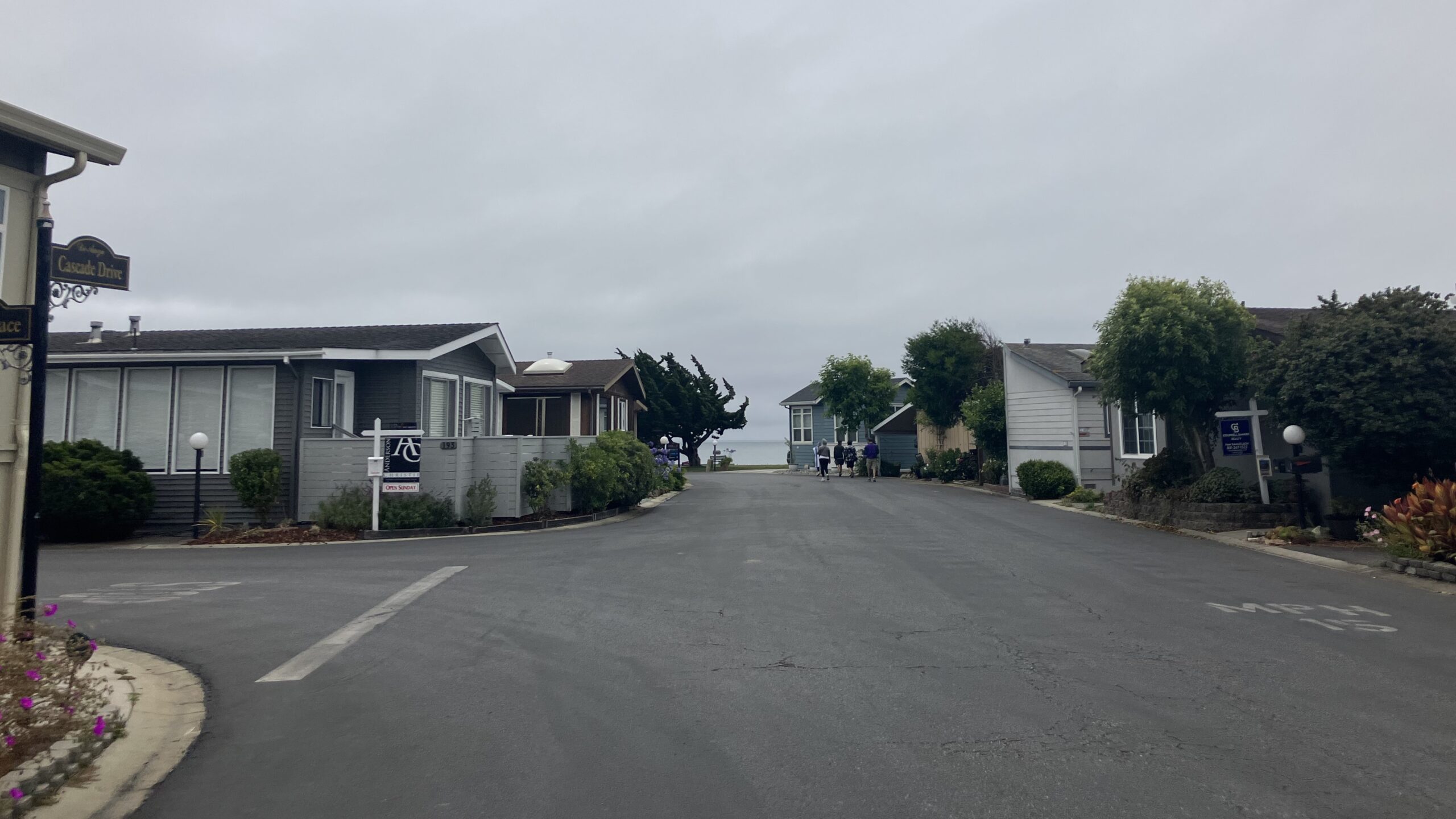
Eight mobile home spaces were for sale in De Anza mobile home park in Santa Cruz as of Aug. 8. (Michael Mott — Santa Cruz Local)
De Anza residents look forward
Karen Blackman lived at De Anza for eight years. She decided to sell her mobile home this year because of a 6.8% rent hike and because she said the lifestyle investment wasn’t worth it for her.
“I felt like it was no longer a good value. I personally calculated that at a certain point in time, on an appreciating scale every year, I would probably have to leave at some point,” Blackman said. “It’s not intended for the average person,” she said.
“The leasing amount was going up faster than my income,” she said. “Is this going to be a place for the rich people only?” she asked.
Dawson, one of the residents who asked the city council for support, said she knew of at least two friends who can’t afford the rent and are planning to move out. Dawson’s rent rose to $3,583.40 from $3,200 since May 2020. She also pays for maintenance, utilities, homeowners insurance and related taxes, and said the high base rent made 3% rent increases difficult to pay.
“Most of these homes have pretty big maintenance issues. Not all of them are brand new,” Dawson said. “You’ve got to keep them up, especially out here with the salt and the wind.”
Allenbaugh said the overall expenses should be weighed.
“We have a swimming pool year round, sauna, fitness center, private beach and all that stuff,” he said. “It’s the value you put on all that, you know?”
Mobile-home rent rules in other areas of Santa Cruz County
City and county laws can limit rent increases for mobile home tenants with short-term leases. However, state law exempts some long-term leases from those city and county laws, a lawyer with the Santa Cruz City Attorney’s Office said.
A summary of rent increase limits for short-term renters in mobile home parks:
- Santa Cruz: Mobile home rent increases are limited to 75% of the consumer price index change, or 8%, whichever is lower.
- Capitola: In May, the Capitola City Council adopted a rent stabilization law for mobile homes that limits annual rent increases to 5% plus the consumer price index change, or 10%, whichever is lower.
- Watsonville: Mobile home rent increases are capped at 70% of the consumer price index change or 5%, whichever is lower.
- Scotts Valley: Mobile home rent increases are capped at the consumer price index change.
- Live Oak, Pleasure Point and Soquel: In unincorporated areas of Santa Cruz County, mobile home rent increases are limited to 50% of the consumer price index change.
Clarification: An earlier version of this story contained incorrect information about rental and ownership arrangements in some mobile home parks and property taxes.
Questions or comments? Email [email protected]. Santa Cruz Local is supported by members, major donors, sponsors and grants for the general support of our newsroom. Our news judgments are made independently and not on the basis of donor support. Learn more about Santa Cruz Local and how we are funded.
Michael Warren Mott is a graduate of UC Santa Cruz and Columbia University's School of Journalism. He has worked for newspapers across California.


